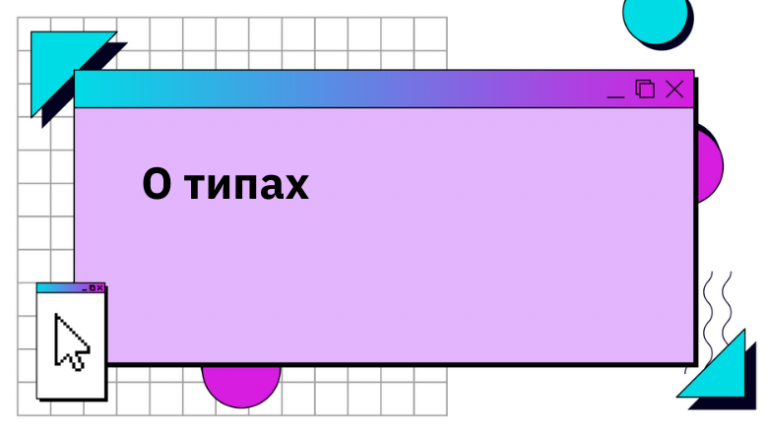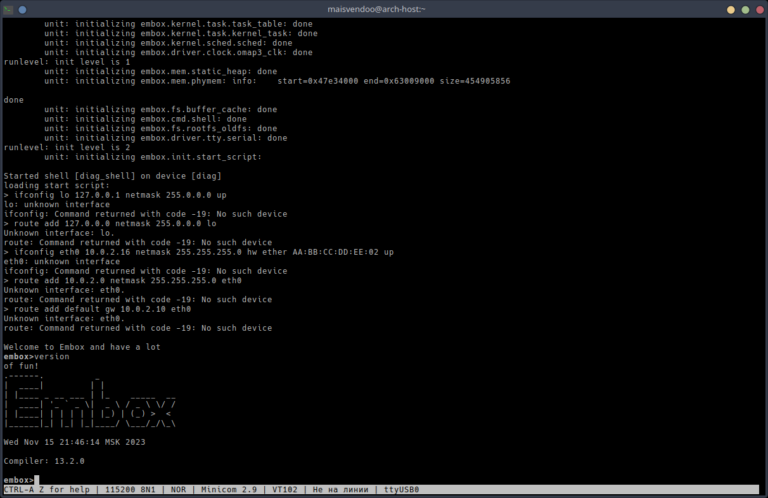Popularization of desktop linux. Face control

Appearing almost simultaneously with Windows, GNU/Linux still occupies a very small share among desktop operating systems. Can a free open source project attract new supporters and conquer ordinary users’ computers? This will be discussed
We are talking exclusively about the desktop use of Linux on home computers and laptops and does not apply to Linux on servers, routers, etc.
1. Come to our club
Project GNU was founded in 1983, in 1985 the first version was born Windows. In 1991, GNU received a kernel in the form linuxand Windows in 1993 found it in the form NT. After 30 years, Windows is the most popular operating system on personal computers, while GNU/Linux (hereinafter simply Linux), cannot boast of this, from the word “absolutely”. And although everyone seems to be used to this situation, from time to time there are statements about the need to popularize desktop Linux. True, most often, it sounds very abstract and without specifics – but among whom, does it need to be popularized?
If there are geeks and programmers among specialists who professionally work on powerful software packages, then there is no point in such popularization: they themselves are able to answer the question whether they need Linux. There is no point in promoting Linux among ordinary users (those who are commonly called “housewives”), since it does not depend on them at all which OS will be installed on their computers.
Apparently, we are talking about attracting people like me, those who are just in the middle – more enlightened in IT than the average user, but not belonging to the clan of programmers. People who understand software / hardware, but often do not speak English. Those about whom they say “a familiar computer scientist”, who are called to set up a freshly bought computer and who are consulted. The same army (because there are many of us), on which the installation of operating systems on the computers of ordinary users depends.
And this is generally correct, because the share of desktops that could be covered by the forces of enthusiastic developers seems to have already been achieved, and the way forward lies through the search for supporters in the broader masses, among those who are not a programmer, not a professional IT specialist, but still an advanced user who is interested in computers and along the way “feeds“far from computer technology” flock. “That is, among people like me.
2. Vote for…
That’s just me, the notorious “familiar computer scientist”, although I can install Linux for them, I will not do this unless specifically asked. In 100% of cases, I install Windows, and the reasons for this are obvious: most software / games are under Windows, hardware support is Windows, and in case of user problems, it is much more likely to google a solution for Windows, if only because of its greater prevalence. And it’s much easier, in extreme cases, to roll back Windows to a restore point than to figure out what’s jammed on this Lincus.
Answering users’ questions and solving their problems is much more convenient when they use the same operating system as yours. It’s one thing to explain over the phone “click here and there.” Another is to dictate abracadabra for the terminal and ask to read what is written there. After all, it is me, in which case, they will take out the brain. And it goes without saying that it is difficult to create problems in Linux – what the playful hands of users are capable of, no test laboratory will foresee this.
And what is the point of putting Linux users on computers instead of Windows is a big mystery, since I simply have no reasons for this. Linux is an unfamiliar and fragmented system, with fewer features, weak user software, a tiny fraction of the PC and vague prospects.
And the fact that its source code is open does not give anything and does not improve the situation, because people like me are not programmers at all and it does not represent any value for us, but in the Linux community, our opinion is not accepted and any suggestions from the side of the “windows” they are met with hostility.
3. And this is all for me?
After all, we say from time to time what needs to be done with Linux in order to bring it to a human form. It is we who are horrified by footcloths with dependencies, which, sometimes engaging in mutual extermination, bury the necessary programs / functionality along the way. We are not satisfied with problems with drivers for new hardware, and not very new ones either. We consider the terminal to be a hopelessly outdated relic of the distant past, and the repositories are a crutch, forced to be used due to poor compatibility, the content and availability of which (especially over time) is also a big question.
It is us (and not only us) who need high-quality software – from offices, games and graphics, to video and 3D editors, and not clumsy “analogues”. Or bring already, these same analogues, to an acceptable level. We need to install software by clicking on the installation file, through “next, next, done” even without the Internet, and not furious spells on a black background, which also still need to be googled. This is what we need to fine-tune the system and manage it through the GUI, or, in extreme cases, through the menu, but not through the terminal.
This does not suit us with the fragmentation of Linux, because distribution kits have been spawned in such quantities that the devil will break his leg there, and if you multiply them by the current versions, and then into an abyss of desktop environments …
And so on, so forth, so on, in the same vein. In this sense, Penguin cannot stand any comparison with Winda – he is immediately torn to shreds, like that hamster from a joke from a drop of nicotine.
4. What about talking?
And it is we, for that matter, who are offered to become programmers in order to write code and send pull requests, or (not very politely) are sent to “go to the cashier”. For some reason, adherents of Linux sincerely believe that we are obliged to quit everything and rather retrain or pay. Of course, I’m sorry, but if you think a little: a us something What is this for?! Yes, I understand that “with your charter in a strange monastery” and so on … But then, if you please, do not brandish your censer in our diocese, okay?
After all, it is rather, on the part of Linux, that there is an interest in increasing the number of users, and we can easily do without it. How in general can we talk about popularizing Linux on the desktop if the Linux community and developers do not want to do anything for this? Break the user through the knee? Well, well… Given that the most powerful software company is on the opposite side of the ring, I will not bet even a penny on Linux in this case. Yes, in general, statistics have been demonstrating this for thirty years. And pushing away potential allies is a bad idea.
5. Mom’s friend’s son
Promote Linux? Yes please! It is enough to simply learn from a much more successful product and do the same, “but with mother-of-pearl buttons.” If they do, we ourselves will come running, you don’t even need to call. Windows, being the most popular system, has become the de facto standard for the desktop and has developed appropriate habits among users, fixing them over the years at the level of reflexes. And there is not a single reason for users to change these habits. Plus, a huge amount of very different software has been developed for Windows, for every taste and color, including free and even open source. And it is no less than Linux.
Like it or not, these facts must be reckoned with. The user, at least, should not “overpower” his computer by entering into a fight with him, he should just sit down and work, guided by the experience he already has. And in Linux this is not yet observed, especially for people like me who need a little more than a browser / movie / music.
6. Who wants to be a millionaire
And if we are talking about money, then when buying Windows (and other things), a person pays for what already available. That is, it has already been made and it can be viewed and tested. In the case of Linux, statements like “go to the cashier” cause, to put it mildly, surprise: what should you pay for? Show me please. I would like to inspect the product before buying. Just keep in mind: in order for me to fork out and persuade the user to do the same, the product needs to match the competing one in terms of its parameters. And of course, no one will ask for their work more than the equivalent of a competitor in retail, right?
7. Let them scream – ugly …
Well, if there are no jokes, then of course, there can’t even be any talk of anything like that: I won’t go to the cashier and I won’t study programming. Why is it for me? I have a different profession. Windows is more or less fine with me, and I get along just fine without Linux (although I do wonder about it from time to time). And what in Windows still does not suit, is corrected and supplemented by an incredible number of a wide variety of utilities.
Yes, Windows is far from perfect, but at least it has already been studied up and down, unlike the many-sided Linux, in which there is nothing permanent at all, except for a tambourine. And therefore, on the computers of ordinary users, it will be Windows, and not Linux, because it’s just from me and depends, not on them. And not from the Linux community, by the way, too: for this it is too small in number and it is very divided.
8. Cut into pieces or whole?
In principle, all this can be solved, you just need to start listening to an opinion that is different from your own and turn to face the user, and not … with this one. Do not immediately reject “stupid proposals of neosilators” and do not project dubious “conveniences” on everyone without exception, but try to think about the possibility of implementing alternative features, even as an option.
And if someone says that the ability to choose a convenient way is bad, I will be the first to throw a stone at him. Making Linux look like Windows not only visually (this is not enough, and without everything else it looks like cargo cult), but also in terms of tinkering with the system, working with software, hotkeys, maintenance, and everything that is familiar to a Windows user, and you will be surprised at the number of new users that such “familiar computer scientists” like me are able to put on Linux.
Well, the influx of users will be followed by an improvement in the software part, since with an increase in the share among operating systems, companies developing serious commercial programs will begin to pay attention to Linux. At the current value, it just won’t pay off. And it is the Linux community that should make the first steps towards it, because the rest have no interest in this yet.
9. Red or blue, Neo?
However, this is all poetry. Reality is a bit harsher. There is no one to turn to in the Linux community, due to the lack of at least some “decision-making center”. And the crowd, left to itself, could never create anything worthwhile. A crowd without control is just anarchy and nothing more. Anarchy may also be the “mother of order”, but only in the sense that after it, I agree to any totalitarianism and any dictatorship, if only to stop this chaos.
Of course, you can sit in a cart that is “carried” at the same time by a swan, a crayfish and a pike from a famous fable, but you should not hope for a trip “with the breeze”. It just won’t work. And for the time being, we should not hope for help from our side, we have no reason for this. In response to the plans of the Linux community, exactly the same thing is put on what they put on our proposals, and the popularization of Linux, suddenly, rests against a wall with a huge inscription “Microsoft Windows”. And what is unexpected or surprising about this?
10. Conclusion
Theoretically, the resolution of this situation is possible, but the probability of practical implementation is a big question, since it is in the hands of those who cannot even agree among themselves. Just in case, you should still wish Linux success – Windows has been monopolizing the operating system market for quite a long time, sometimes abusing this position, and the appearance of a worthy competitor will only benefit everyone. Including Windows itself.






